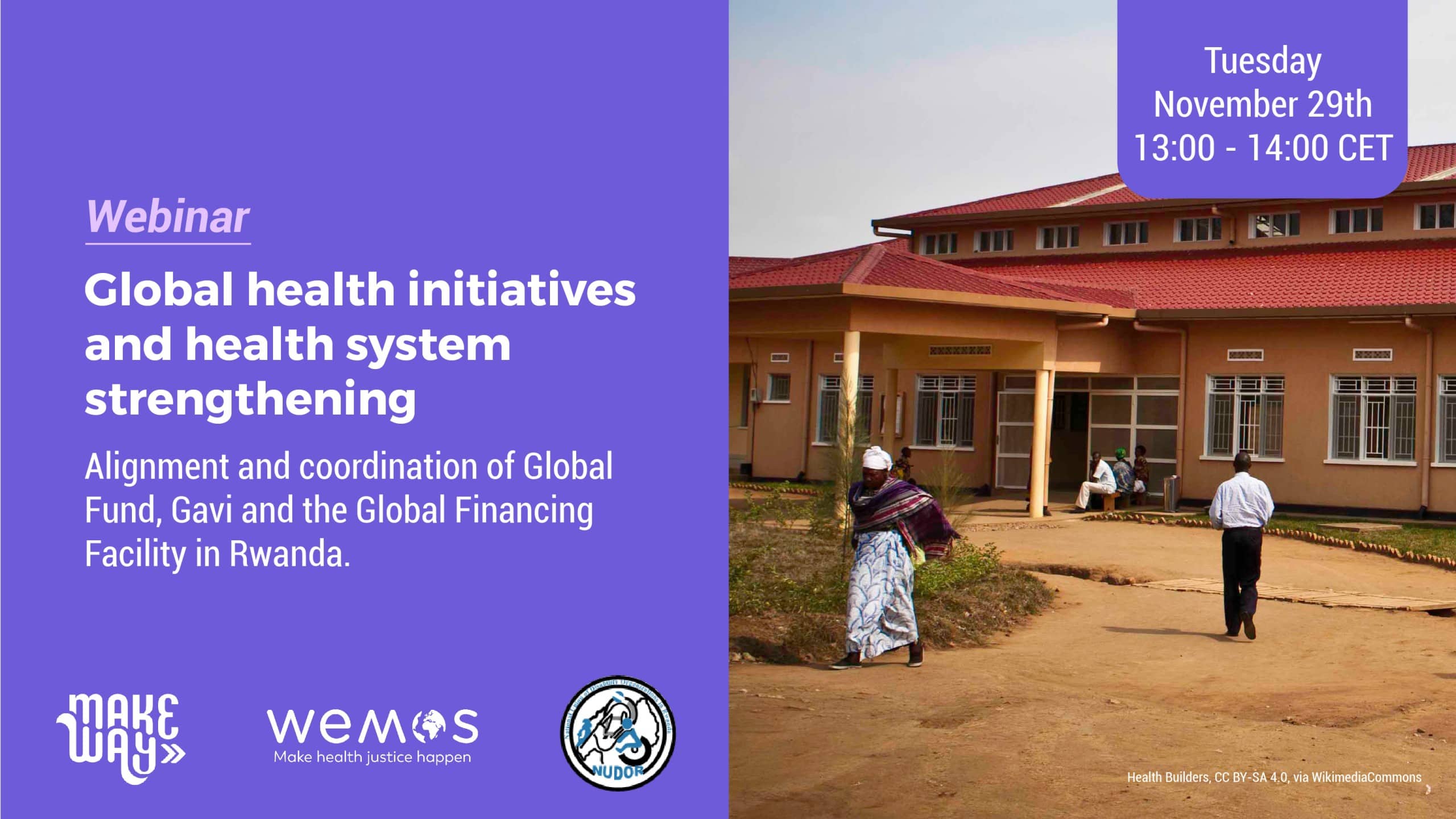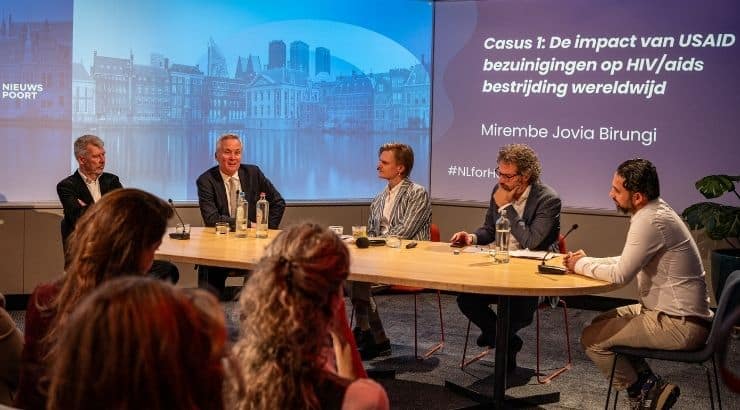Wemos and NUDOR have done a study on the coordination of the “3Gs” and their alignment with Rwanda’s national priorities regarding health and “leaving no one behind”. To present the findings, share the latest updates regarding alignment efforts in Rwanda, and to have an open discussion about the topic, we are organising a webinar on November 29th.
The Global Fund to Fight AIDS, Tuberculosis and Malaria (Global Fund), the Global Alliance for Vaccines and Immunizations (Gavi) and the Global Financing Facility (GFF), also called the “3Gs”, are three major global health initiatives that (among others) aim to strengthen health systems. Efforts to improve coordination among global health initiatives, like the 3Gs, and their alignment with country policies, is a topic which creates a great deal of debate in global fora. This is something that we explored with a global level study conducted with Cordaid in 2021.
However, to what extent do the 3Gs coordinate their policies and align with national strategies in order to strengthen health systems, at the country level? To answer this question for the case of Rwanda, Wemos and NUDOR collaborated in a joint case study, under the Make Way programme. We focused on two key elements of a health system: health financing and human resources for health, as well as on the cross-cutting themes of civil society and community engagement and gender equality.
On November 29th, we are organising a webinar to present our findings and create the opportunity to discuss developments, challenges, and lessons learned regarding the 3Gs and their alignment in Rwanda. Join us!
In the meantime, you can already explore the key findings and recommendations of our study in this policy brief.





